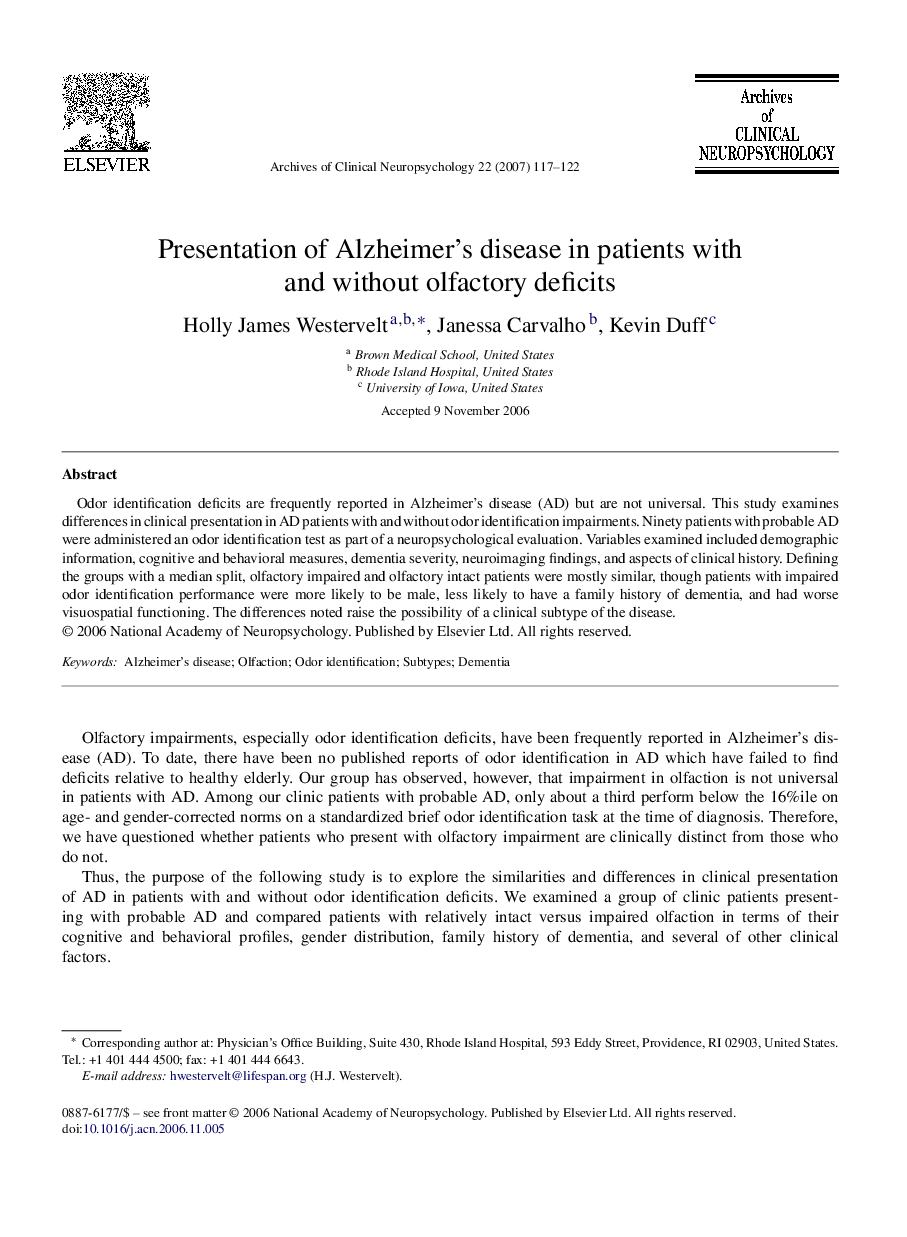| Article ID | Journal | Published Year | Pages | File Type |
|---|---|---|---|---|
| 901055 | Archives of Clinical Neuropsychology | 2007 | 6 Pages |
Odor identification deficits are frequently reported in Alzheimer's disease (AD) but are not universal. This study examines differences in clinical presentation in AD patients with and without odor identification impairments. Ninety patients with probable AD were administered an odor identification test as part of a neuropsychological evaluation. Variables examined included demographic information, cognitive and behavioral measures, dementia severity, neuroimaging findings, and aspects of clinical history. Defining the groups with a median split, olfactory impaired and olfactory intact patients were mostly similar, though patients with impaired odor identification performance were more likely to be male, less likely to have a family history of dementia, and had worse visuospatial functioning. The differences noted raise the possibility of a clinical subtype of the disease.
